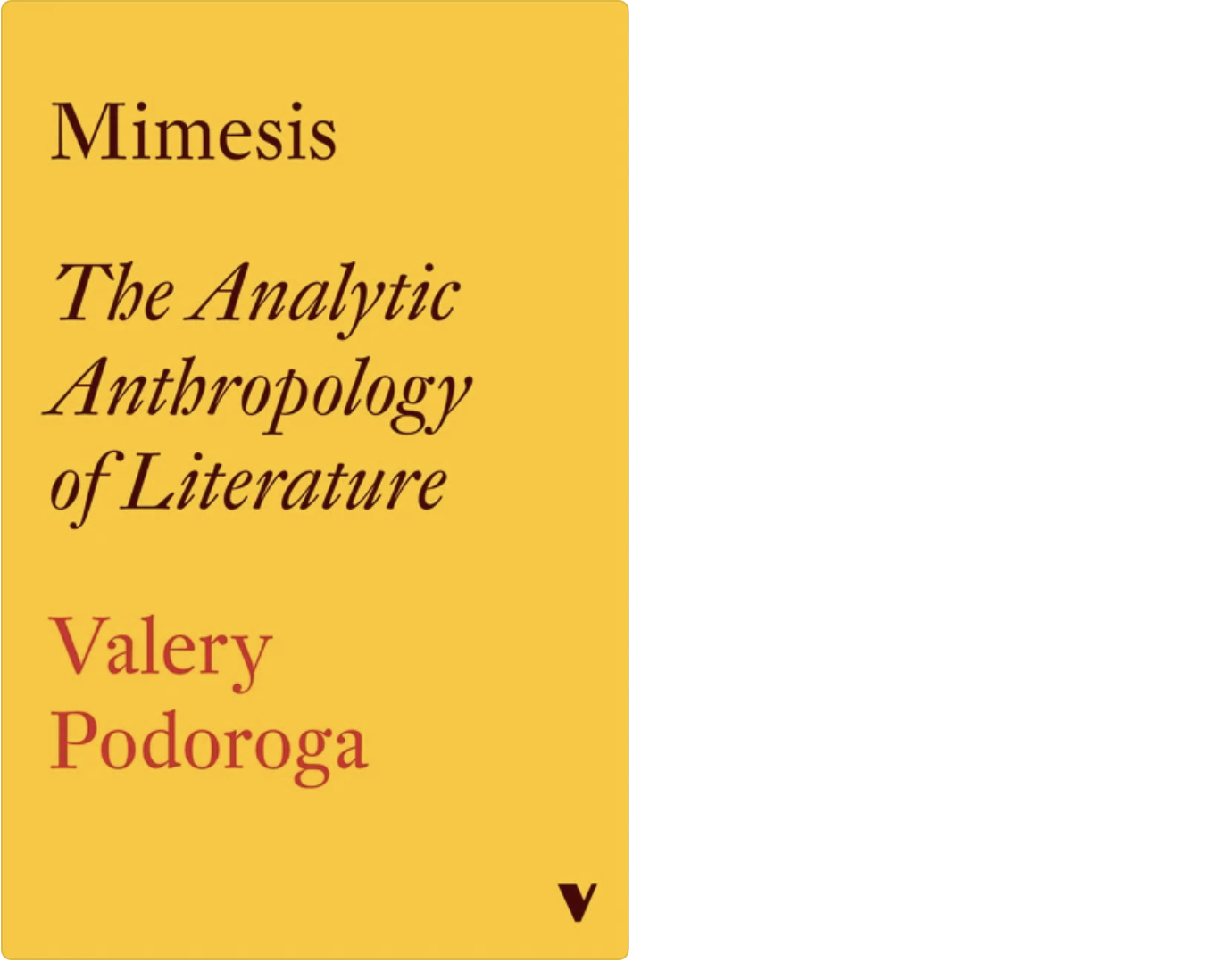Valery Podoroga: “Mimesis. The Analytic Anthropology of Literature”
London: Verso, 2022, ISBN: 978-1786636676, 305 pp.
DOI:
https://doi.org/10.17892/app.2023.00017.326Abstract
How does one approach a book of a philosopher who insists on being an anthropologist, despite all indications to the contrary? How does one understand this investment in creating and maintaining a terminological façade that embraces a very different kind of structure within? And what is the point of this façade in the first place? Valery Podoroga’s volume under review suggests a plausible answer to these questions – mimesis, that is to say, an ability to imitate; a capacity to appropriate; a skill to uproot, which is coupled with a desire to transpose conventions and approaches from the place of their origin to a new location. Speaking about Voltaire’s works, Erich Auerbach in his foundational study Mimesis: The Representation of Reality in Western Literature (1946) succinctly expressed the gist of the mimetic faculty: “Voltaire arranges reality so that he can use it for his purposes” (p. 411). Mimesis, then, could be seen as a purposefully re-arranged reality, a reality under control, a reality with a maximized use-value. How and to what purpose do these operations of re-arranging, controlling, and maximizing (the value of) reality present themselves in Podoroga’s work?

Downloads
Published
How to Cite
Issue
Section
License
Copyright (c) 2023 Apparatus. Film, Media and Digital Cultures of Central and Eastern Europe

This work is licensed under a Creative Commons Attribution 4.0 International License.
The articles in Apparatus are published under https://creativecommons.org/licenses/by/4.0/ This license does not apply to the media referenced, which are subject to the individual rights owner's terms.
The authors hold the copyright without restrictions and retain publishing rights without restrictions.





